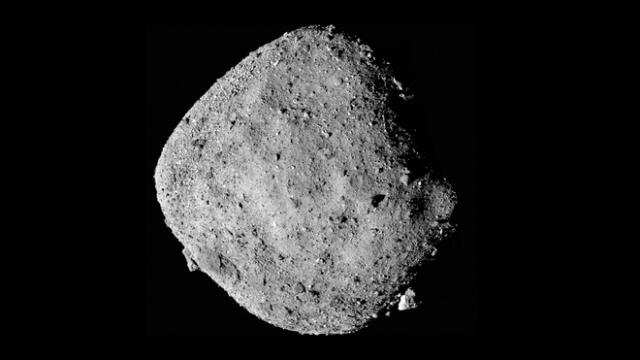NASA’s breakthrough on asteroid Bennu challenges theories about the origins of life on Earth
NASA’s analysis of asteroid Bennu has revealed organic molecules, challenging conventional theories about the origins of life on Earth. This discovery suggests that life’s building blocks may have arrived from space.

A recent discovery from NASA’s OSIRIS-REx mission has sparked a major debate among scientists regarding the origins of life on Earth. The analysis of samples from asteroid Bennu has revealed surprising organic compounds, reshaping long-held theories about how life may have begun.
For decades, researchers have believed that life’s building blocks were formed in Earth’s primordial environment. However, the presence of crucial organic molecules on Bennu suggests that these components might have arrived from space, challenging existing models of abiogenesis and planetary evolution.

OSIRIS-REx mission returns with material from asteroid Bennu. Photo: Muy Interesante.
Bennu’s composition: A game-changer for science
NASA’s OSIRIS-REx mission successfully returned samples from Bennu, near-earth asteroid rich in carbonaceous material. Initial analysis indicates the presence of amino acids and other organic molecules essential for life. This discovery supports the hypothesis that meteorites and asteroids may have delivered key ingredients for life to early Earth.
Astrobiologists argue that these compounds could have provided the necessary conditions for prebiotic chemistry, the process that eventually led to life. If confirmed, this finding strengthens the panspermia theory—the idea that life’s building blocks are widespread in space and could have travelled to Earth through celestial bodies.

ALSO SEE: Numerous dead ducks were found washed up on the shores along Lake Michigan's Chicago shoreline
Implications for future space exploration
The implications of this discovery extend beyond our planet. If Bennu carries organic molecules, other asteroids and celestial bodies might also hold similar compounds, increasing the chances of extra-terrestrial life. Future missions to Mars, Europa, and Titan may prioritize searching for organic material and signs of biological processes. Moreover, understanding Bennu’s composition helps scientists refine planetary defence strategies. As a potentially hazardous asteroid, Bennu’s structural properties and material composition provide valuable insights for mitigating future asteroid threats.
While the findings from Bennu are ground-breaking, they don't offer definitive proof that life originated in space. Some scientists argue that organic molecules could have formed in multiple locations, both on Earth and in space. However, the discovery raises critical questions about the early chemical processes that led to life as we know it. NASA and other space agencies will continue studying Bennu’s samples to unravel more details. As more data emerges, scientists may need to rethink long-established theories about life’s beginnings and the role of asteroids in shaping habitable planets.












